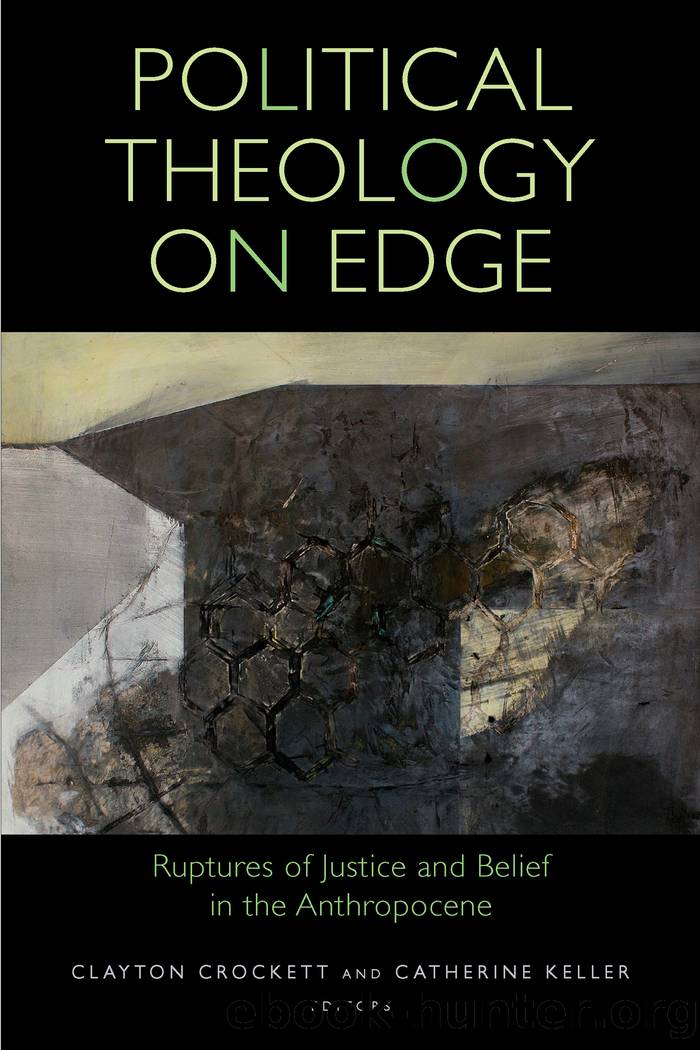Political Theology on Edge by unknow

Author:unknow
Language: eng
Format: epub
Publisher: Fordham University Press
Published: 2021-10-15T00:00:00+00:00
9. Listening for the Power of the People: A Political Theology of Affect
LISA GASSON-GARDNER
Truth isnât truth.
âRUDY GIULIANI, Meet the Press, August 2018
Halo around you, donât have to face it on your own.
âJANELLE MONáE, âAmericansâ
Political discourse in the United States is experiencing a crisis of truth. Truth seems to either have no grounding in fact or to be limited to fact aloneâand facts alone, arguably, lack the power to unite people to work for justice. Despite ongoing declarations that American society is âpost-truth,â political theologians and activists who seek to facilitate a coalition of people who share a set of powerful, motivating claims that respond to climate crisis, to white nationalismâs (most recent) rise, to fascism, and more must not allow truth to fall into meaninglessness. Truth ought to matterâto be materially connected to the lives of people, specifically the people who are most oppressed by the US system of governance and power.
First, this chapter analyzes the contemporary deployment of reason as the definition of truth, arguing that this version of truth is limited and focused mainly on fact-checking. Stephen Pinkerâs Enlightenment Now serves as a representative example of the elevation of fact-checking as the pinnacle of truth-making. Pinker advocates for a form of supposedly secular (free from religious bias) reason that has no first principlesânothing to âbelieve in.â In doing so, Pinker obfuscates the human element of truth-making, the fallibility and the admixture of beliefs, acknowledged or not. As a result, Pinker obscures the power, a kind of sovereignty, to set the norms for truth. This essay attempts to free reason from this sovereignty by recognizing the fallibility and unacknowledged beliefs working in current political truth-making.1 Pinker extends his neutral version of reason into ethical decisionmaking, which has life-and-death consequences for human beings, creatures, and even the earth. Further, the supposed neutrality of Pinkerâs reason obfuscates his dependence on a version of the autonomous sovereign subjectâthe modern liberal subjectâwho has the ability to exert reason over the other faculties, including feeling. Following J. Kameron Carter, this essay argues that the sovereign subject is a white, heterosexual, cisgendered, able-bodied man and therefore excludes many (most) people not only from decisions about truth, but even from citizenship in the United States.
Depending on the modern liberal sovereign subject, who has the ability to exert reason over feeling, misses the power of affect as it is deployed on the right. This essay argues that the exceptional truth-claims made on the right break the repetitive monotony of life and therefore become a site of excitement, of passion, in truth-makingâand that this kind of truth is powerful. The affective dimension of truth is key to understanding the current status of truth in US political discourse. Continually fact-checking those on the right, while important, obfuscates the movement of powerâof affective power. The left and the right find themselves at an impasse of fact versus feeling, which leaves progressive causes powerless when faced with claims that are factually inaccurate but affectively powerful. White supremacy/nationalismâs latest rise cannot be countered with facts alone; it requires the paradigm-breaking power of affect.
Download
This site does not store any files on its server. We only index and link to content provided by other sites. Please contact the content providers to delete copyright contents if any and email us, we'll remove relevant links or contents immediately.
Collaborating with Parents for Early School Success : The Achieving-Behaving-Caring Program by Stephanie H. McConaughy; Pam Kay; Julie A. Welkowitz; Kim Hewitt; Martha D. Fitzgerald(899)
Entrepreneurship Education and Training: The Issue of Effectiveness by Colette Henry Frances Hill Claire Leitch(665)
Adding Value to Policy Analysis and Advice by Claudia Scott; Karen Baehler(499)
Materializing the Middle Passage by Jane Webster;(496)
Race and American Political Development by unknow(488)
Sociological Perspectives of Health and Illness by Constantinos N. Phellas(478)
American Government and Politics Today by Steffen W. Schmidt Mack C. Shelley Barbara A. Bardes(475)
Human and Global Security : An Exploration of Terms by Peter Stoett(464)
Control Of Oil - Hardback by Kayal(462)
The Disappearance of Rituals: A Topology of the Present by Byung-Chul Han(399)
Advances in Child Development and Behavior, Volume 37 by Patricia J. Bauer(396)
The Catholic Church and European State Formation, AD 1000-1500 by Jørgen Møller(389)
The World According to China by Elizabeth C. Economy(379)
Theories of Counseling and Psychotherapy: A Case Approach by Nancy L. Murdock(370)
Left Is Not Woke by Susan Neiman(369)
Application of classical statistics, logratio transformation and multifractal approaches to delineate geochemical anomalies in the Zarshuran gold district, NW Iran by unknow(363)
Turkey's Relations with the West and the Turkic Republics: The Rise and Fall of the Turkish Model by Idris Bal(353)
Cross-Cultural Child Development for Social Workers by Lena Robinson(349)
Japan's Ainu Minority in Tokyo by Mark K. Watson(331)
